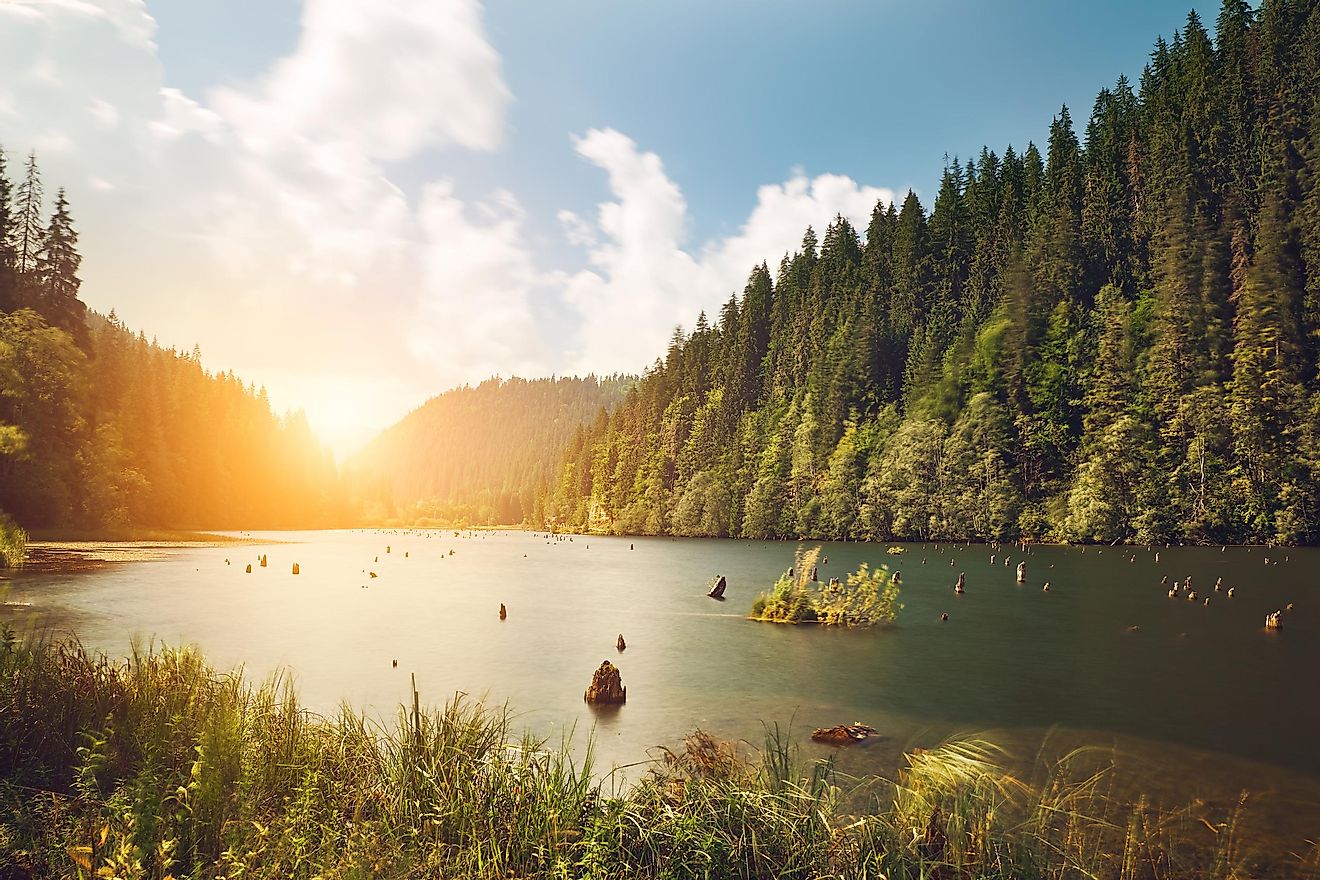Forest Land By Canadian Province And Territory

Forests in Canada play a significant role in the country’s economy and the total forest cover in the country account for 42% of land area. Canada has 10% of the world’s forest cover which is made up mainly of pine, poplar and spruce trees. The forestry industry is under the management of the Natural Resources Canada and the Canadian Forest Service in conjunction with several other organizations. There was extensive deforestation in the country during the 18th and the 19th centuries, mainly by the European settlers, but the modern policies have halted further deforestation and now only less than 1% of Canada’s forest is affected by logging each year. Although the land that is logged in Canada is minimal, the country is the second largest exporter of forest products in the world. Forestry industry contributes significantly to the country’s surplus balance of trade.
Forests In Canada
Approximately 8% of Canada's forest cover is protected by government legislation, less than 1% of which is annually logged and is eventually reforested after harvesting. Canada is among the top five countries with the greatest amount of forest land along with China, Russia, the US, and Brazil. The five countries collectively account for more than half of the forest land cover in the world.
History Of Forestry In Canada
Forestry in Canada dates back to the 11th century when Leif Ericson first set foot the coast of what is believed to be Newfoundland. Forestry in large scale began when the European settlers landed in Canada centuries later. Canada went through a deforestation period between the 18th and 19th centuries as a consequence of a heavy influx of settlers who were clearing the lands.
Present Day Forestry In Canada
Currently, forestry is a big industry in Canada. As of 2010, the industry contributed to $23 billion to the country's economy. During the same year, the forestry industry directly employed more than 190,000 people, contributing to $8.8 billion in salaries in 2009 and 1.3% of the country's total employment. Most of the employees who work in Canada's forestry industry are found in British Columbia, Ontario, and Quebec. Most of the country's forestry products are exported.
The Top Canadian Regions And Territories By Forest Cover
Even though Quebec has the largest forest cover in Canada, British Columbia has the biggest reserved forest cover in the country. Quebec has the largest total forest and non-reserved area measuring 73,360 and 72,667 hectares respectively. The province has 693 hectares of reserved forest. Ontario is the second largest province in Canada regarding total forest area accounting for 53,758 hectares, a reserved and non-reserved forest cover of 3,543 and 50,215 hectares respectively. British Columbia is the Canadian province with the third largest total forest area and largest reserved forest cover measuring 57,910 and 4,124 hectares respectively. The province has a non-reserved forest cover of approximately 53,786 hectares. The Northwest Territories are the largest Canadian territories and the country's fourth largest region regarding forest cover accounting for a total forest area of 28,352 hectares and a reserved and non-reserved forest cover of 861 and 27,492 hectares respectively. Nunavut and Prince Edward Island are the smallest territory and province in regards to total forest area covering 815 and 265 hectares respectively.
Forest Land By Canadian Province And Territory
| Rank | Canadian Province/Territory | Total forest area (thousands of hectares) | Reserved (thousands of hectares) | Non-reserved (thousands of hectares) |
|---|---|---|---|---|
| 1 | Quebec | 73,360 | 693 | 72,667 |
| 2 | Ontario | 53,758 | 3,543 | 50,215 |
| 3 | British Columbia | 57,910 | 4,124 | 53,786 |
| 4 | Northwest Territories | 28,352 | 861 | 27,492 |
| 5 | Alberta | 27,718 | 3,443 | 24,275 |
| 6 | Saskatchewan | 20,043 | 647 | 19,396 |
| 7 | Manitoba | 18,968 | 1,345 | 17,623 |
| 8 | Newfoundland and Labrador | 10,730 | 72 | 10,658 |
| 9 | Yukon | 7,884 | 214 | 7,669 |
| 10 | New Brunswick | 6,091 | 32 | 6,059 |
| 11 | Nova Scotia | 4,240 | 322 | 3,917 |
| 12 | Nunavut | 815 | .. | 815 |
| 13 | Prince Edward Island | 265 | 1 | 264 |







